Special Report
19 Companies Getting Caught Manipulating the American Free Market
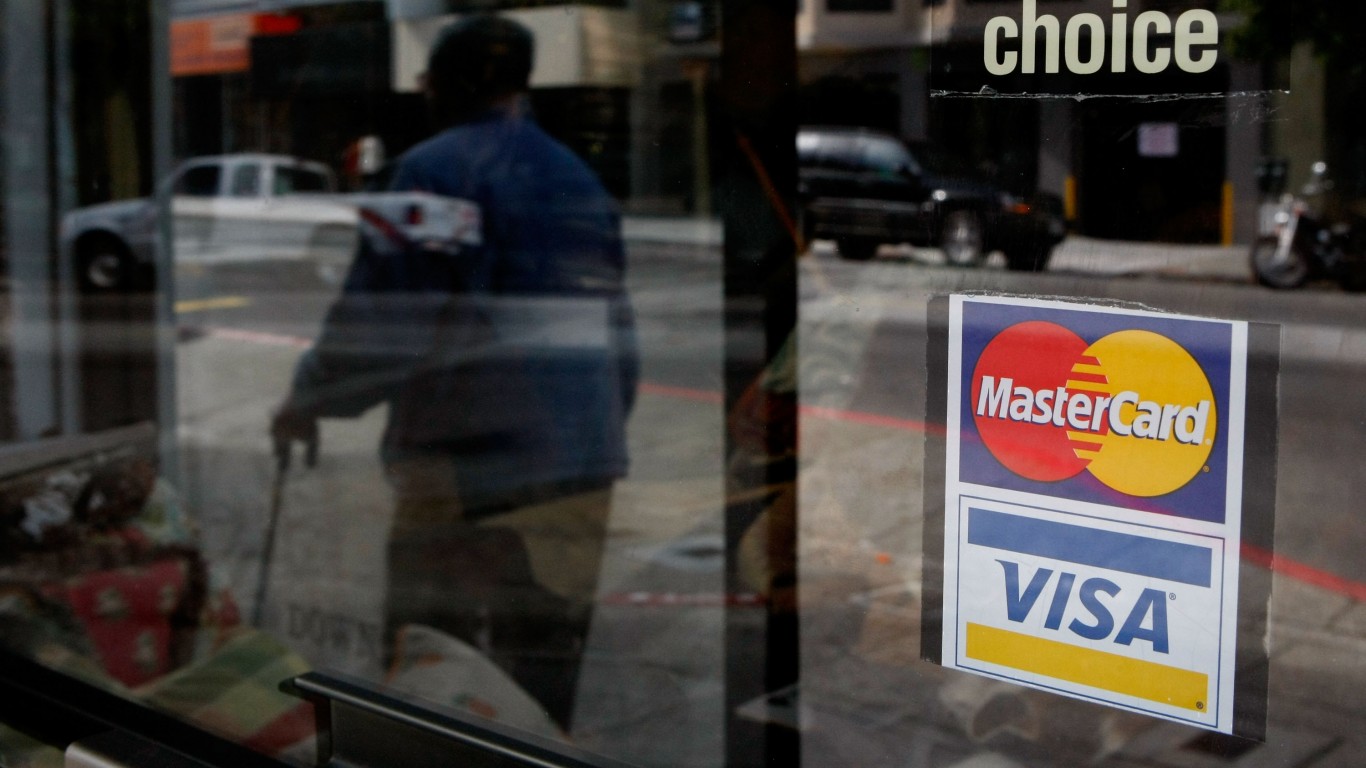
Published:
Last Updated:

In a perfectly free market economy, prices are determined by the laws of supply and demand, resulting in equilibrium prices for goods and services. In our near-free markets, corporations set prices with demand and supply forces in mind, but several factors may considerably distort free-market pricing.
When competitors collude, for example, prices are inflated and the consumer is deceived. And while federal antitrust regulations exist to prevent price collusion, companies operating in the United States have been fined over $96 billion in price fixing penalties since 2000. (See these companies control over 50% of their industry.)
To determine the global corporations manipulating the American free market the most, 24/7 Wall St. reviewed data on price fixing penalties from national policy resource center Good Jobs First’s report Conspiring Against Competition: Illegal Corporate Price-Fixing in the U.S. Economy. Companies were ranked based on the total amount of penalties levied against them and their subsidiaries for price-fixing in the United States from January 2000 to March 2023. There are 19 companies that have been fined over $1 billion. Supplemental data on annual revenue are from SEC filings and annual reports and are for the latest fiscal year.
The list of the most penalized companies is dominated by banks, credit card companies, and financial firms. Many of the penalties involve collusion through the rigging of interest rate benchmarks like Libor (London Interbank Offered Rate), which can affect the cost of business loans, mortgages, and other financial instruments. (Find out if banks are among the companies with the worst reputations.)
The largest price-fixing penalty in recent history was levied against Visa, which was ordered to pay $4.1 billion in December 2019 on allegations of colluding with Mastercard to raise the fees they charge merchants to accept their credit cards. According to Good Jobs First, while most price-fixing happens in business-to-business transactions such as these, as opposed to direct-to-consumer, the higher costs are ultimately passed on to consumers.
The list of the most penalized companies is dominated by banks and credit card companies, but several non-financial companies have faced severe penalties for price-fixing as well. Teva Pharmaceuticals, for example, was charged $1.2 billion in May 2015 for using illegal pay-for-delay agreements to block generic competition to its sleep disorder drug Provigil.
Other heavily penalized companies in industries other than finance include AbbVie, Kinder Morgan, Samsung, LG, Microsoft, NRG Energy, Altria, and Exxon Mobil.
Click here to see the 19 companies getting caught manipulating the American free market.
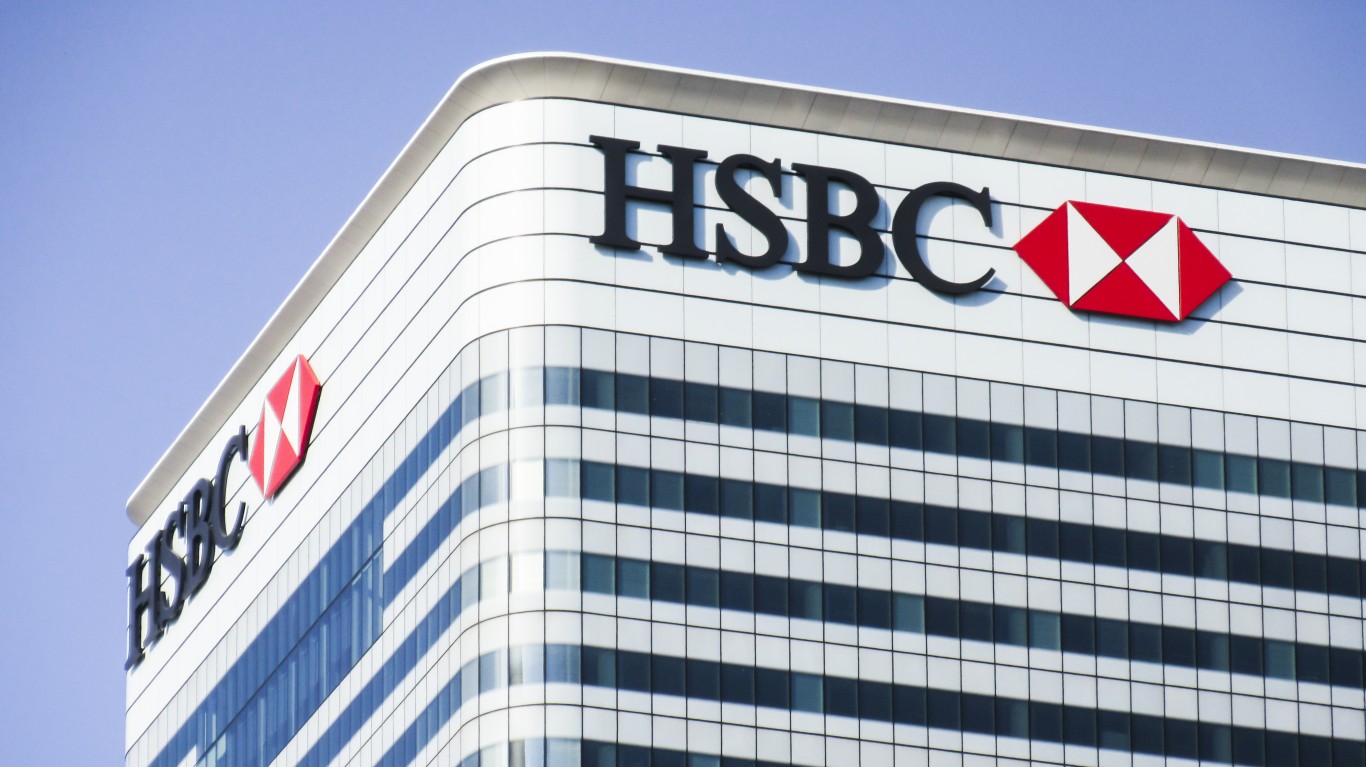
19. HSBC
> Total price-fixing fines and settlements since 2000: $1.05 billion
> No. price-fixing cases since 2000: 14
> Annual revenue: $51.73 billion
[in-text-ad]
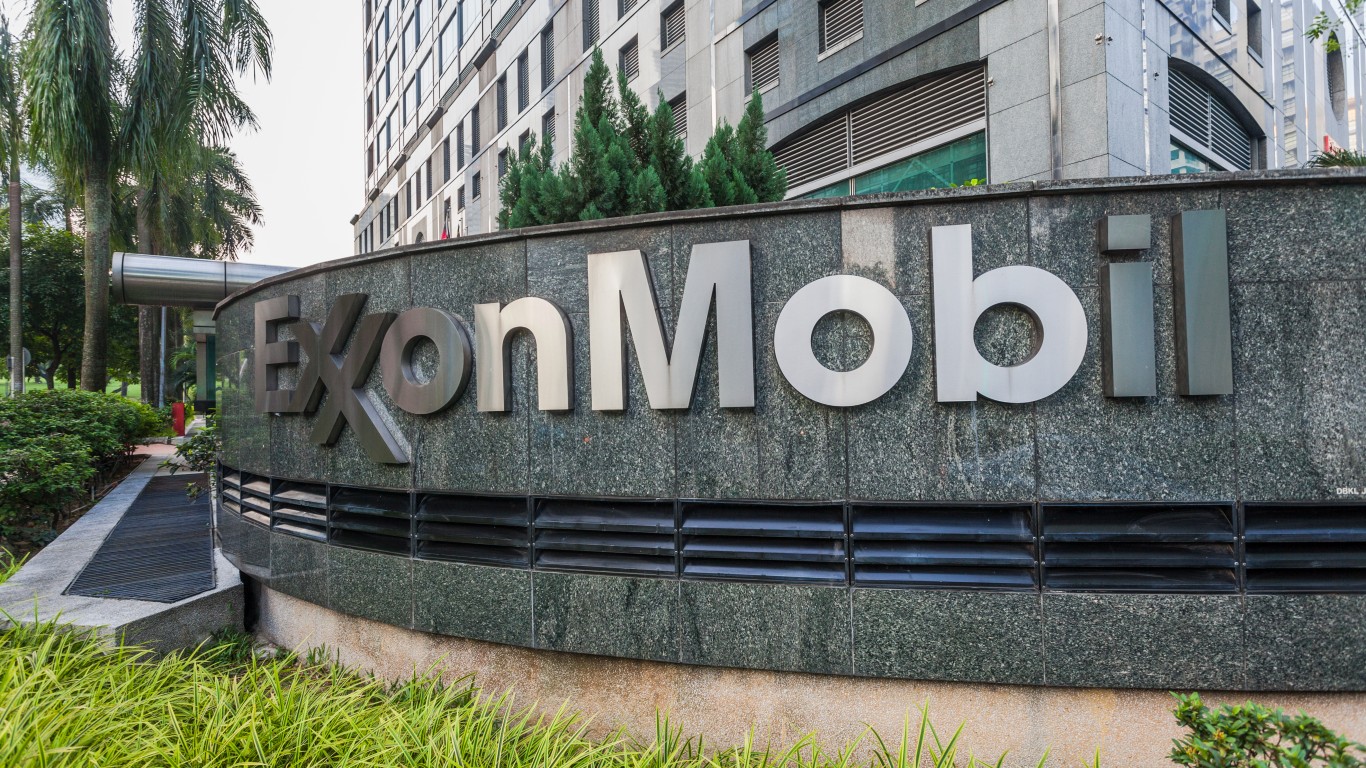
18. Exxon Mobil
> Total price-fixing fines and settlements since 2000: $1.08 billion
> No. price-fixing cases since 2000: 1
> Annual revenue: $413.68 billion
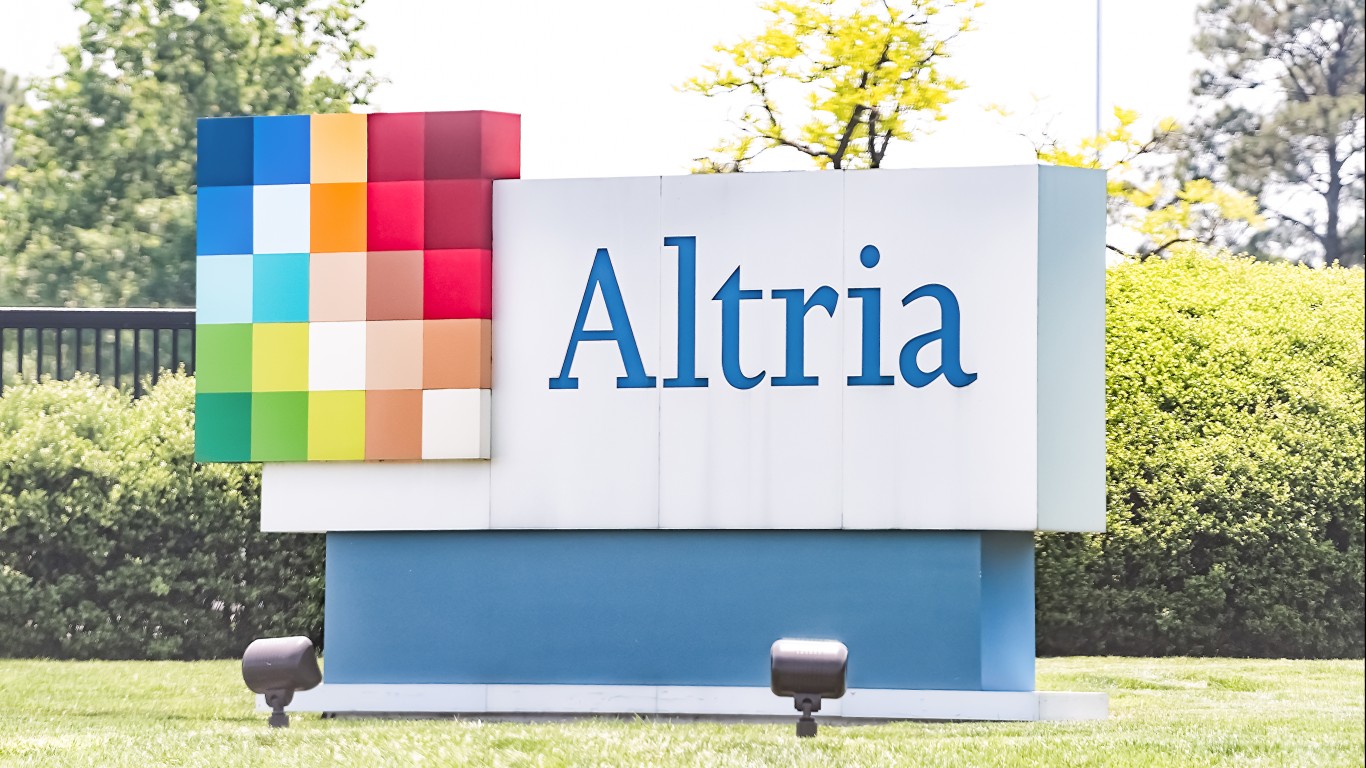
17. Altria
> Total price-fixing fines and settlements since 2000: $1.22 billion
> No. price-fixing cases since 2000: 3
> Annual revenue: $25.10 billion
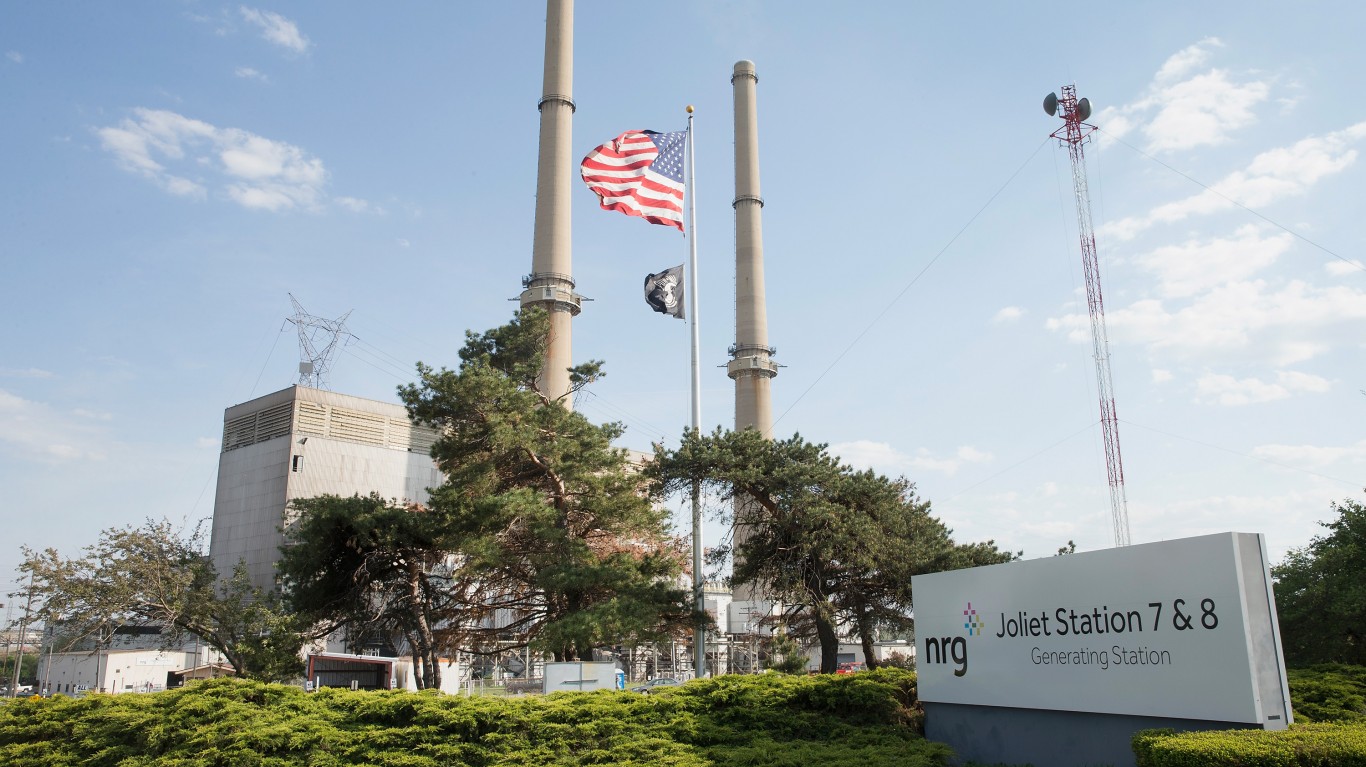
16. NRG Energy
> Total price-fixing fines and settlements since 2000: $1.27 billion
> No. price-fixing cases since 2000: 6
> Annual revenue: $31.54 billion
[in-text-ad-2]
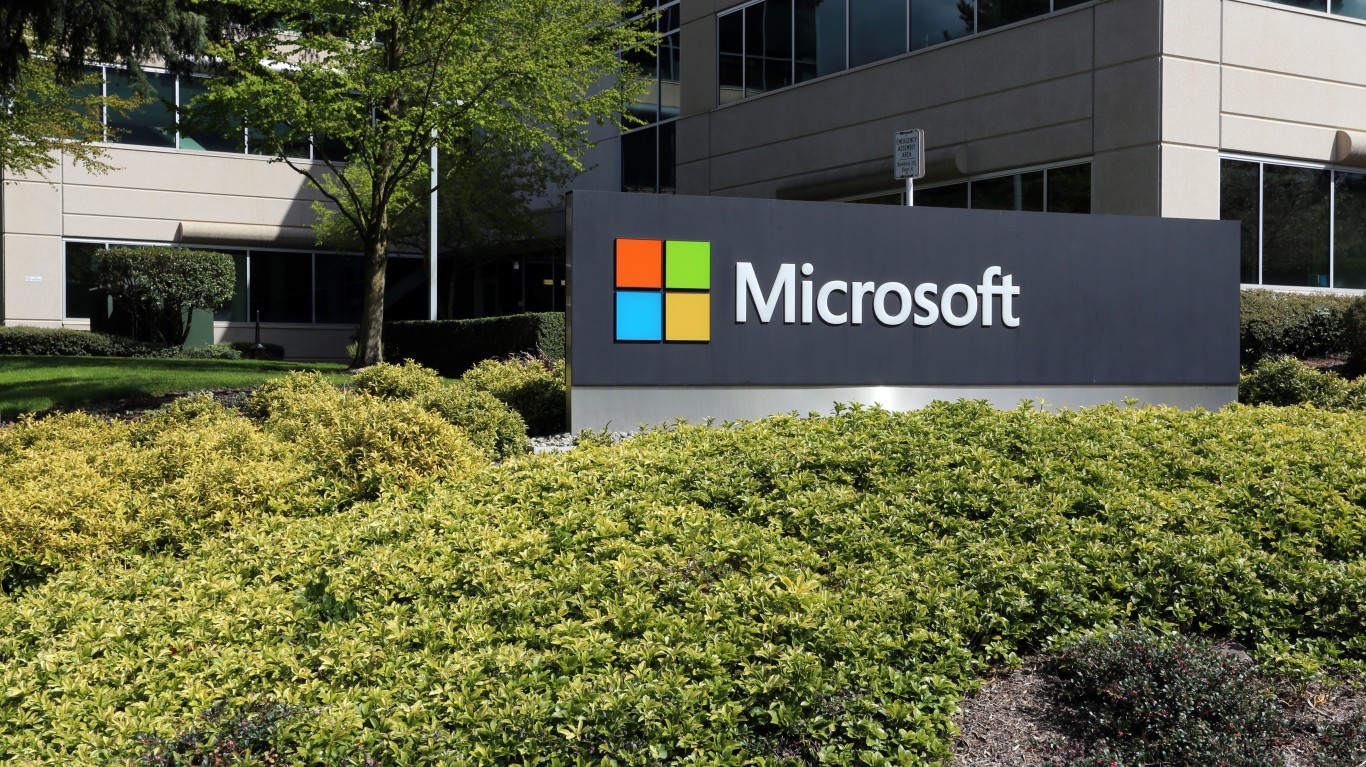
15. Microsoft
> Total price-fixing fines and settlements since 2000: $1.27 billion
> No. price-fixing cases since 2000: 4
> Annual revenue: $198.27 billion
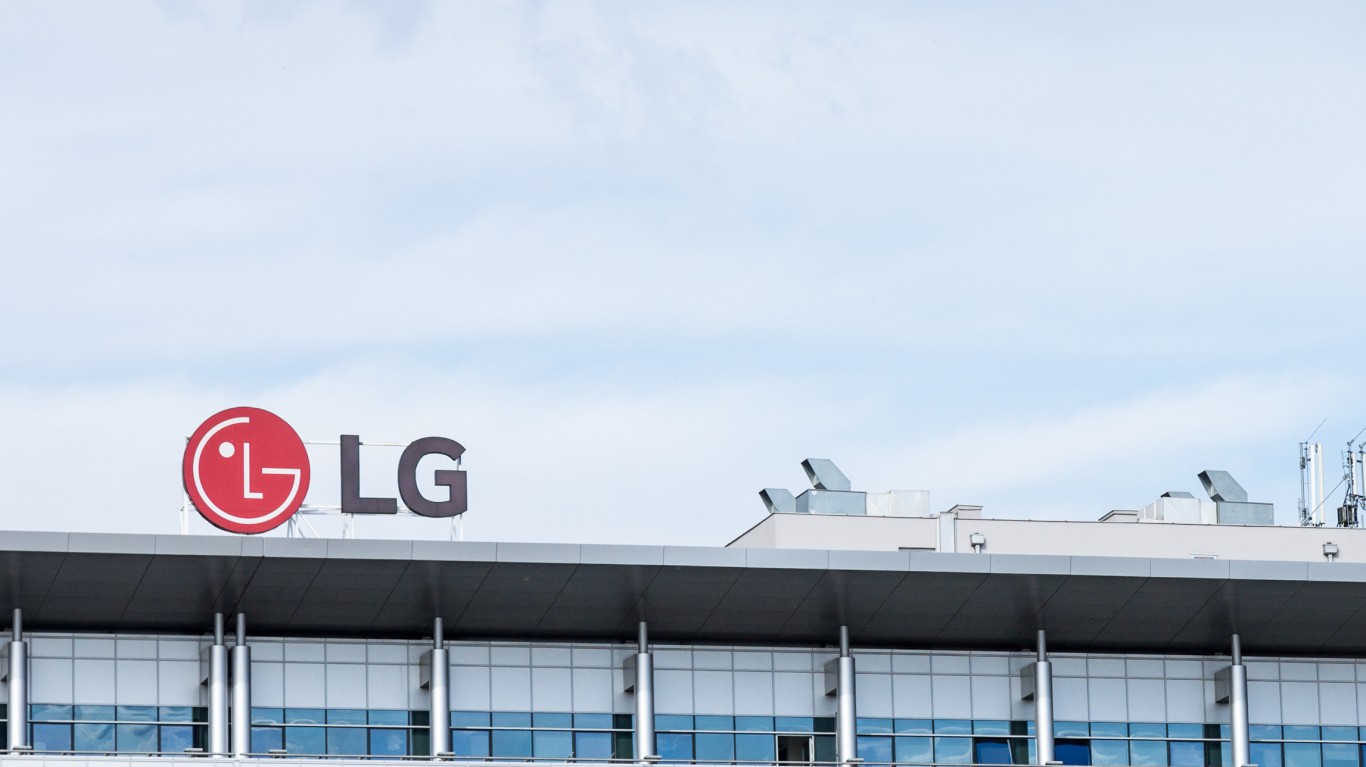
14. LG
> Total price-fixing fines and settlements since 2000: $1.33 billion
> No. price-fixing cases since 2000: 11
> Annual revenue: $66.80 billion
[in-text-ad]
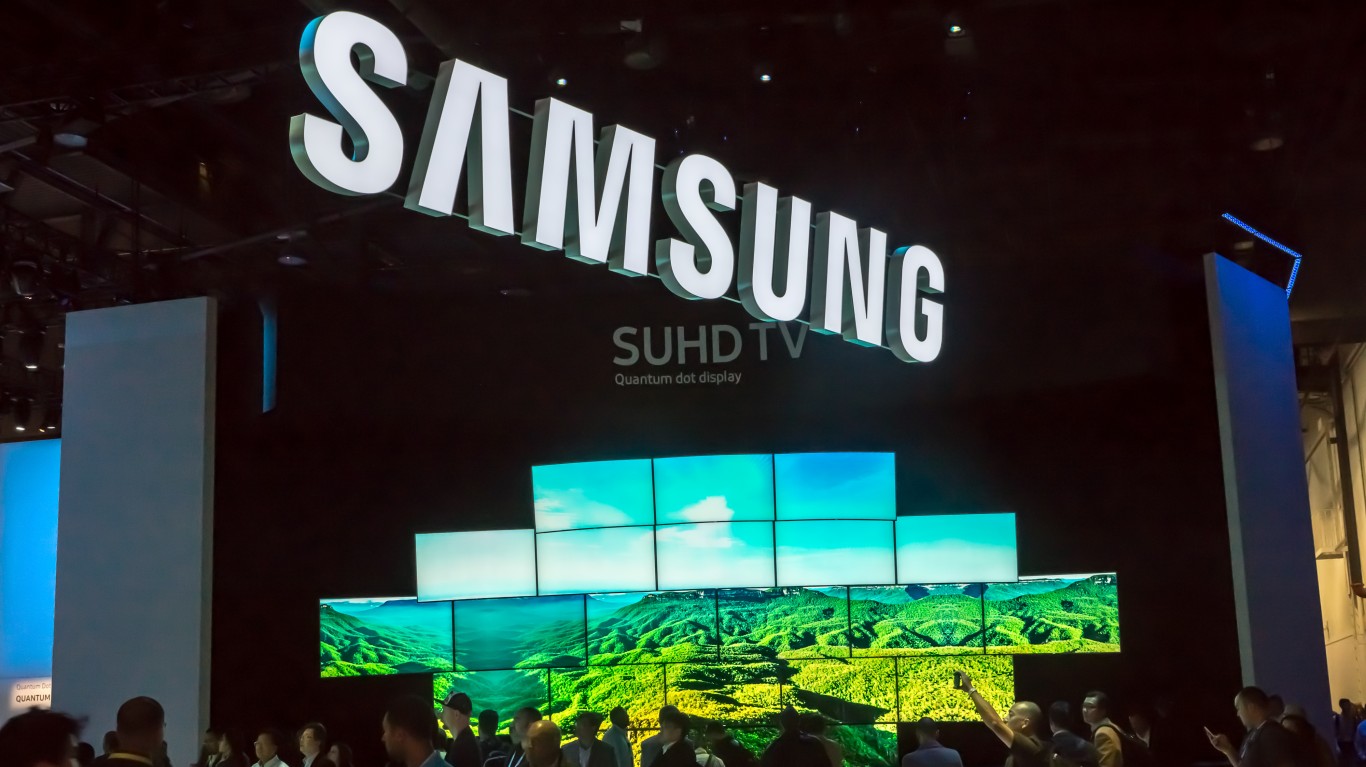
13. Samsung
> Total price-fixing fines and settlements since 2000: $1.45 billion
> No. price-fixing cases since 2000: 18
> Annual revenue: $245.70 billion
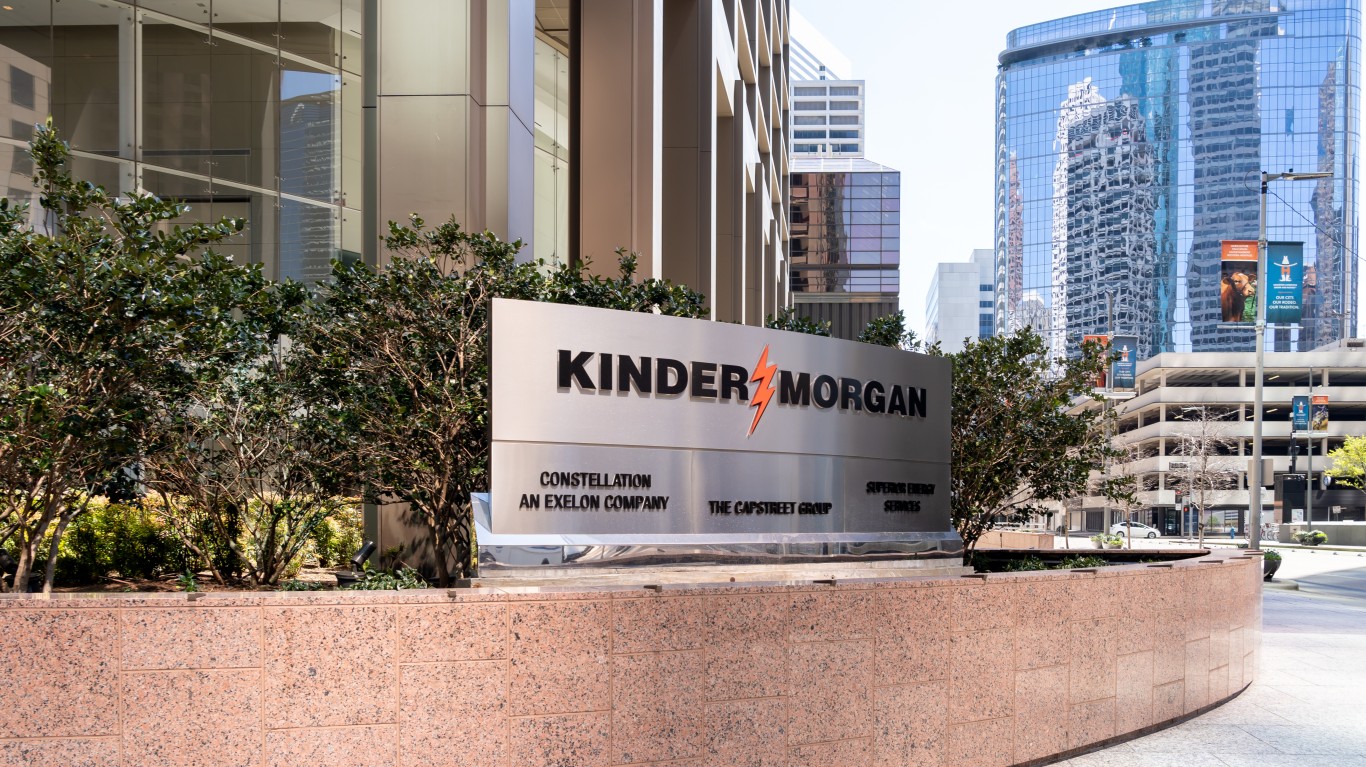
12. Kinder Morgan
> Total price-fixing fines and settlements since 2000: $1.57 billion
> No. price-fixing cases since 2000: 6
> Annual revenue: $19.20 billion
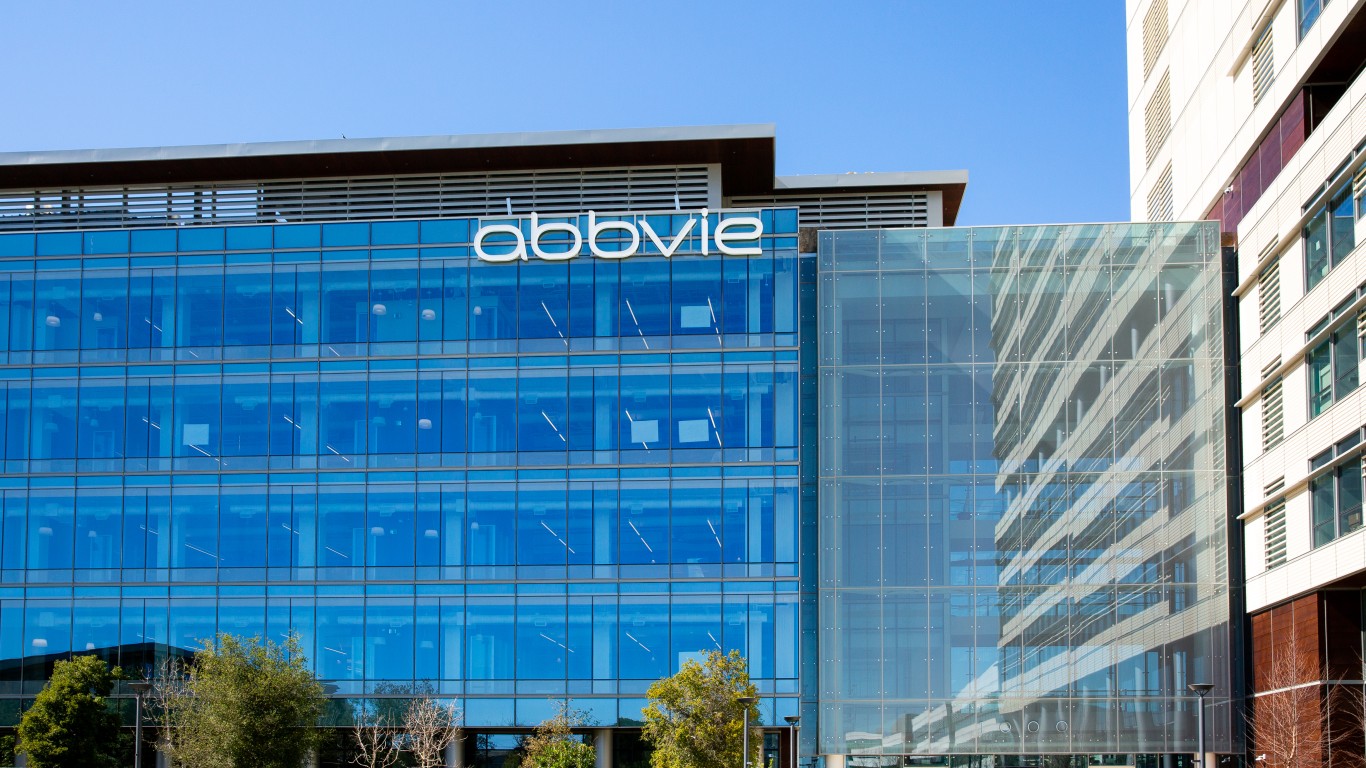
11. AbbVie
> Total price-fixing fines and settlements since 2000: $1.57 billion
> No. price-fixing cases since 2000: 24
> Annual revenue: $58.05 billion
[in-text-ad-2]
10. American International Group
> Total price-fixing fines and settlements since 2000: $1.65 billion
> No. price-fixing cases since 2000: 5
> Annual revenue: $56.44 billion
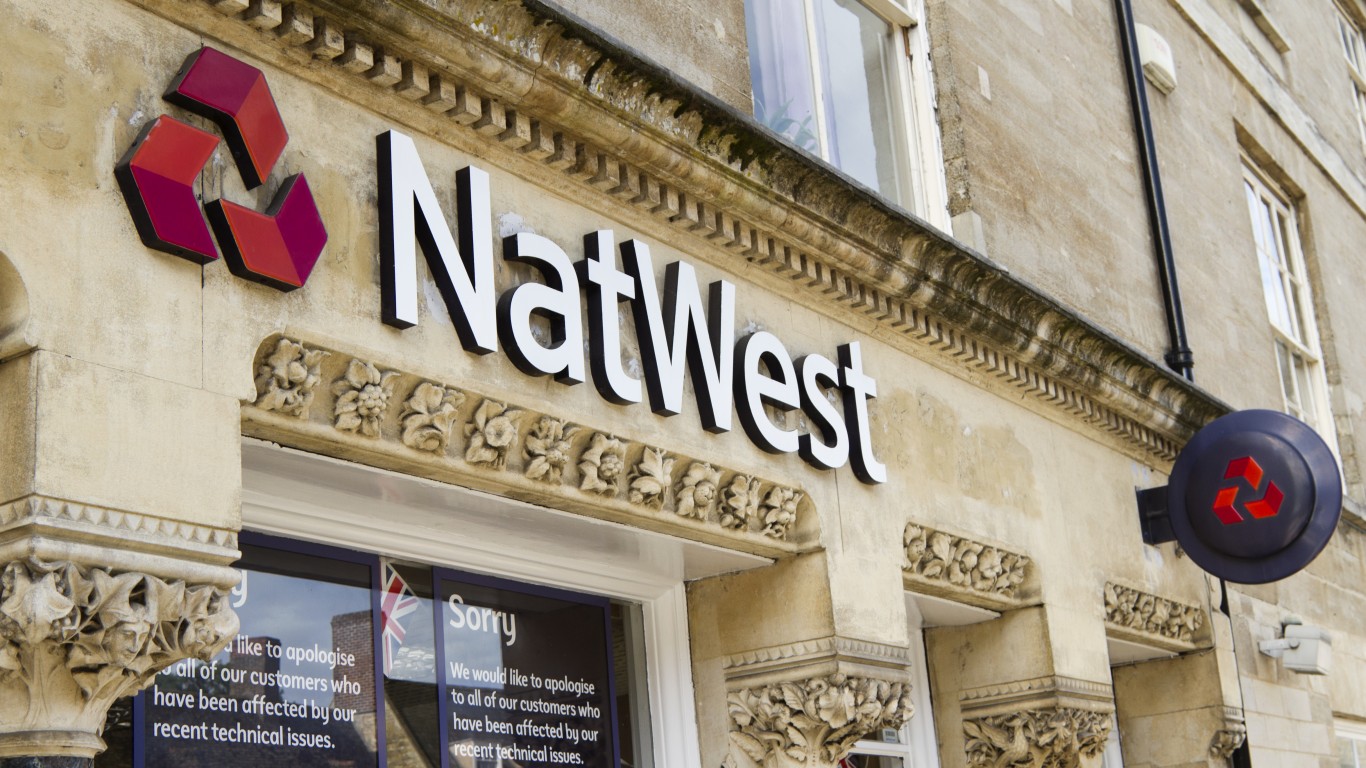
9. NatWest Group PLC
> Total price-fixing fines and settlements since 2000: $1.74 billion
> No. price-fixing cases since 2000: 12
> Annual revenue: $19.73 billion
[in-text-ad]
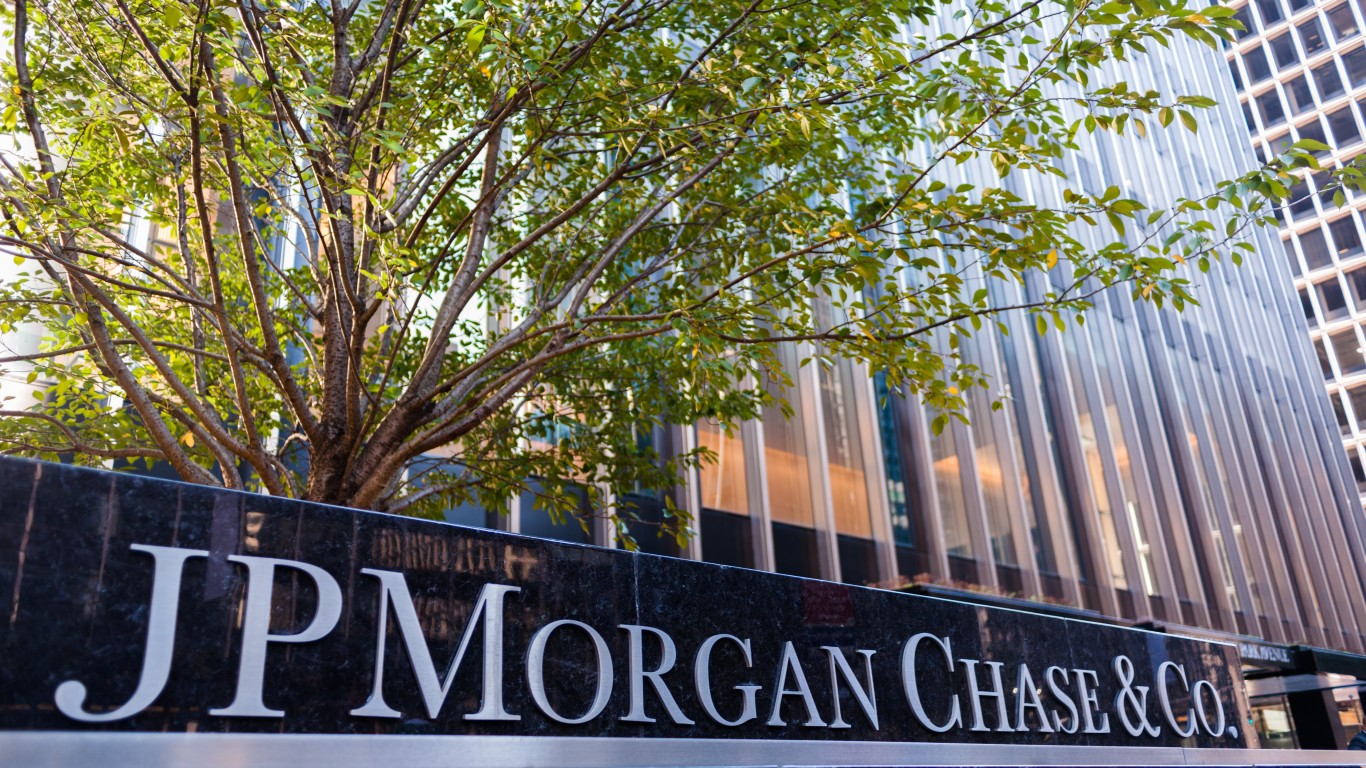
8. JPMorgan Chase
> Total price-fixing fines and settlements since 2000: $2.17 billion
> No. price-fixing cases since 2000: 20
> Annual revenue: $128.70 billion
7. UBS
> Total price-fixing fines and settlements since 2000: $2.32 billion
> No. price-fixing cases since 2000: 15
> Annual revenue: $39.72 billion
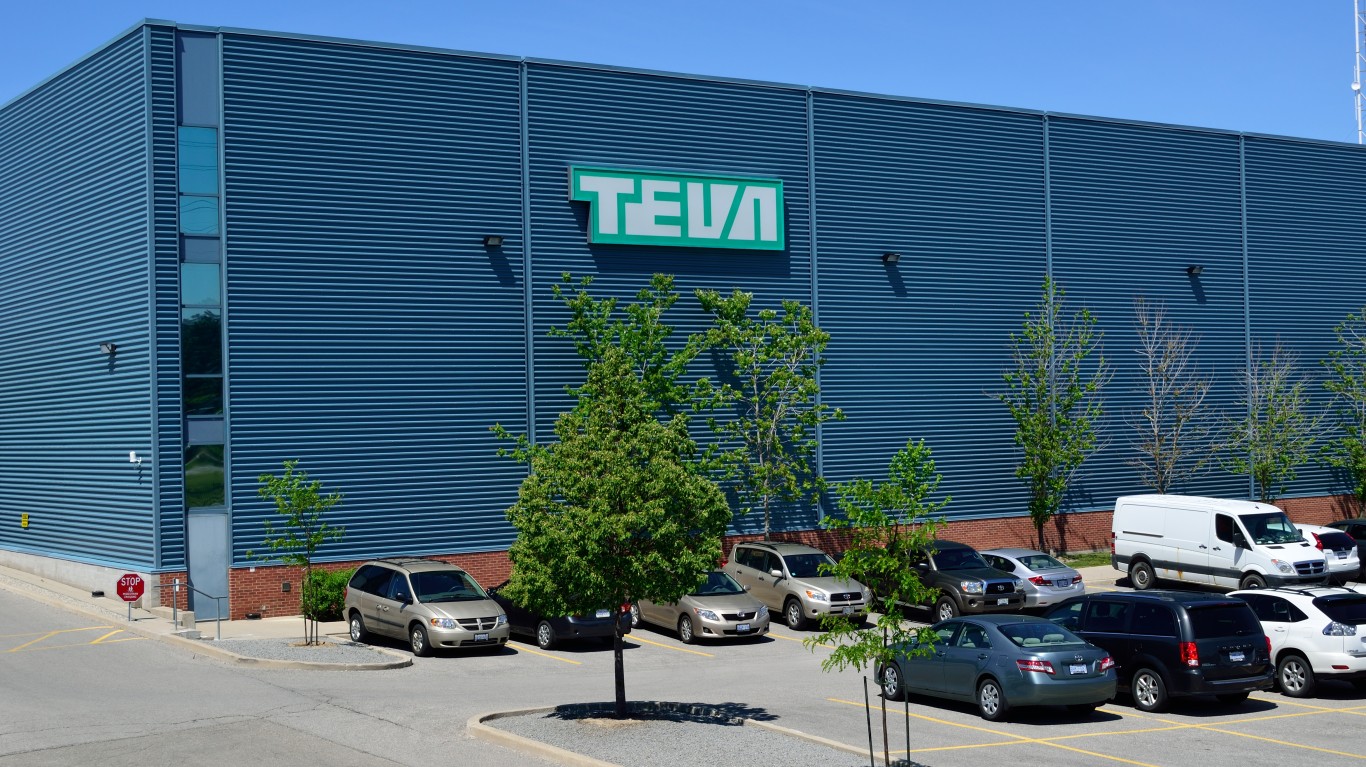
6. Teva Pharmaceutical Industries
> Total price-fixing fines and settlements since 2000: $2.65 billion
> No. price-fixing cases since 2000: 23
> Annual revenue: $14.93 billion
[in-text-ad-2]
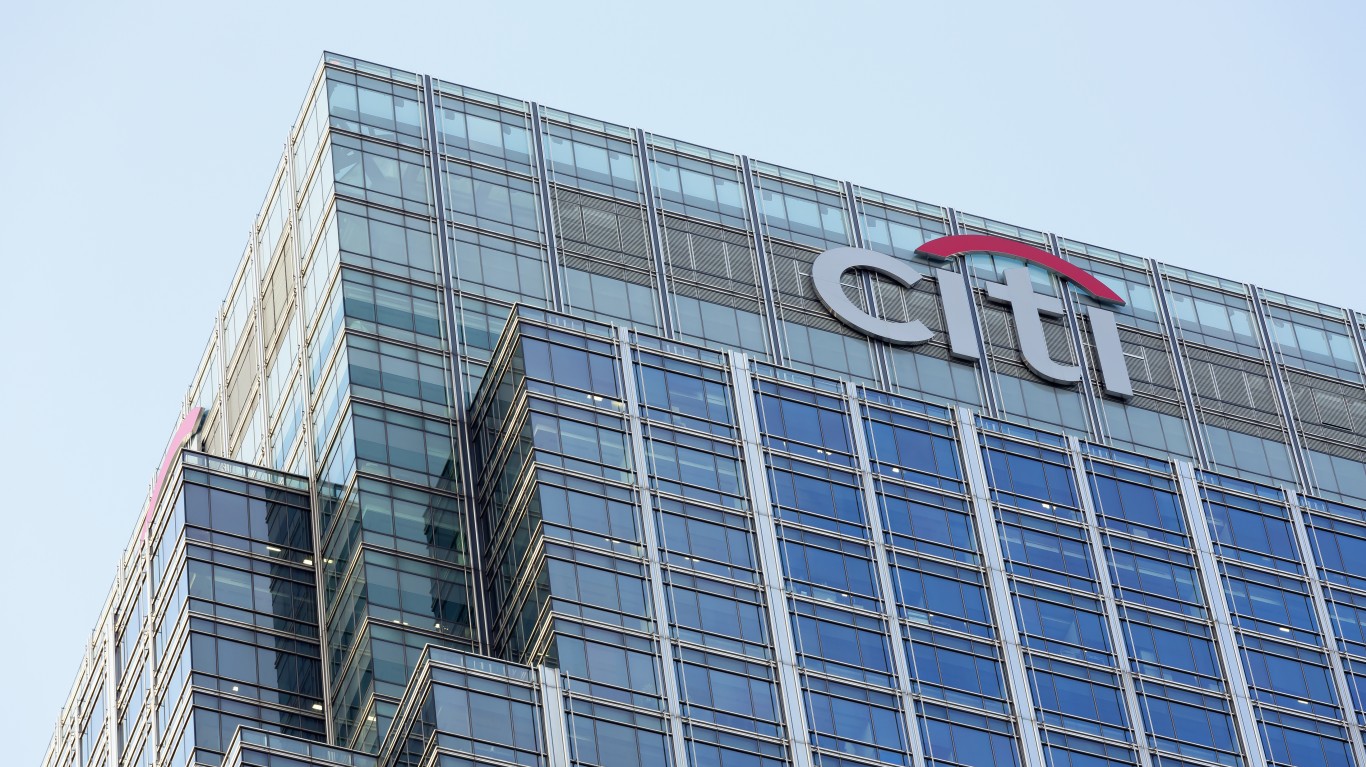
5. Citigroup
> Total price-fixing fines and settlements since 2000: $2.68 billion
> No. price-fixing cases since 2000: 16
> Annual revenue: $74.41 billion
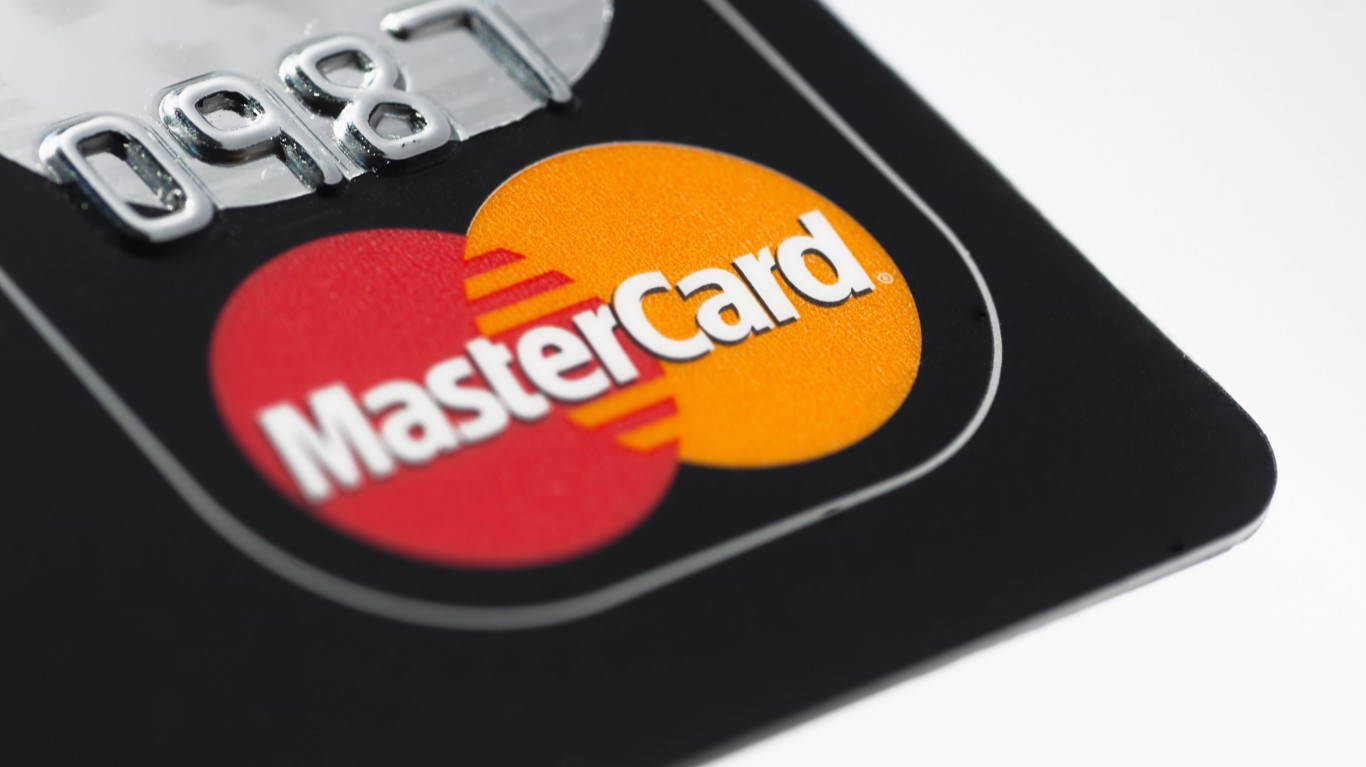
4. MasterCard
> Total price-fixing fines and settlements since 2000: $3.20 billion
> No. price-fixing cases since 2000: 4
> Annual revenue: $22.24 billion
[in-text-ad]
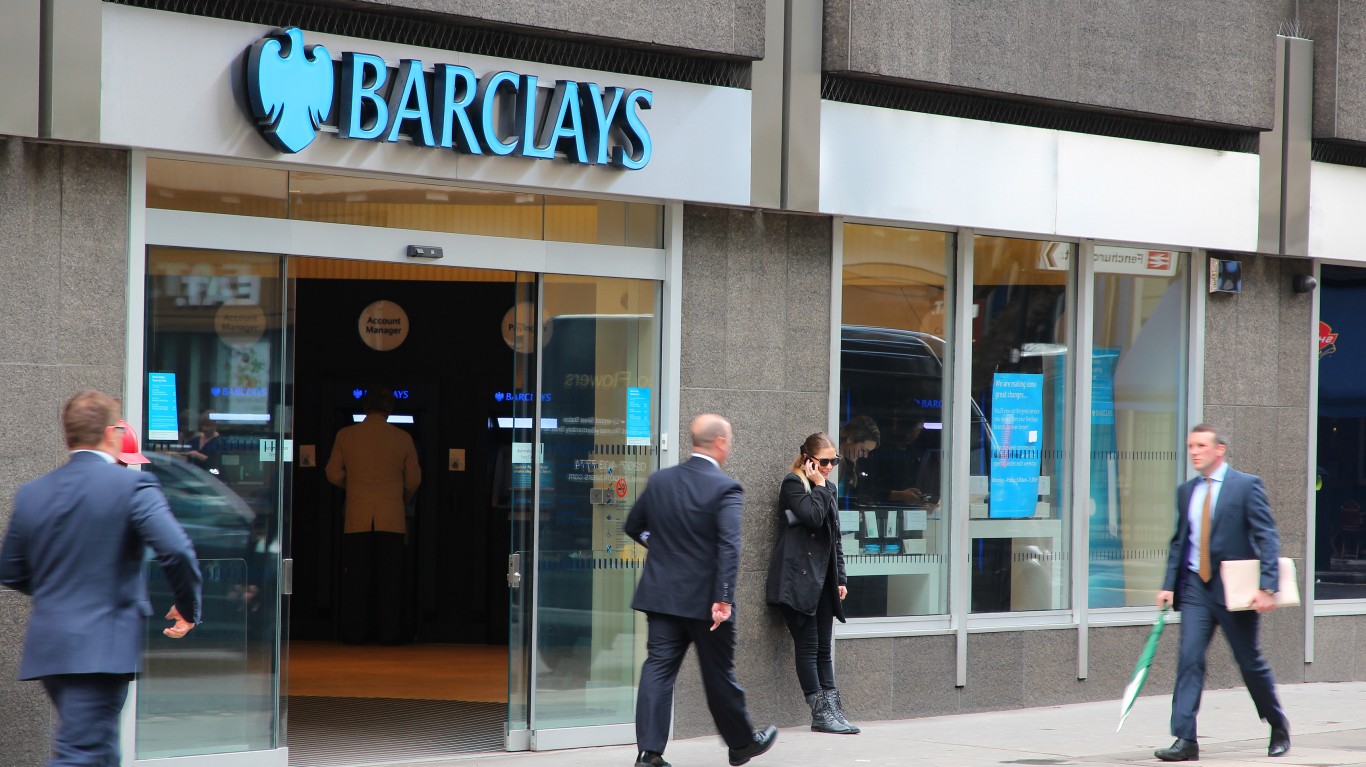
3. Barclays
> Total price-fixing fines and settlements since 2000: $3.24 billion
> No. price-fixing cases since 2000: 21
> Annual revenue: $31.07 billion
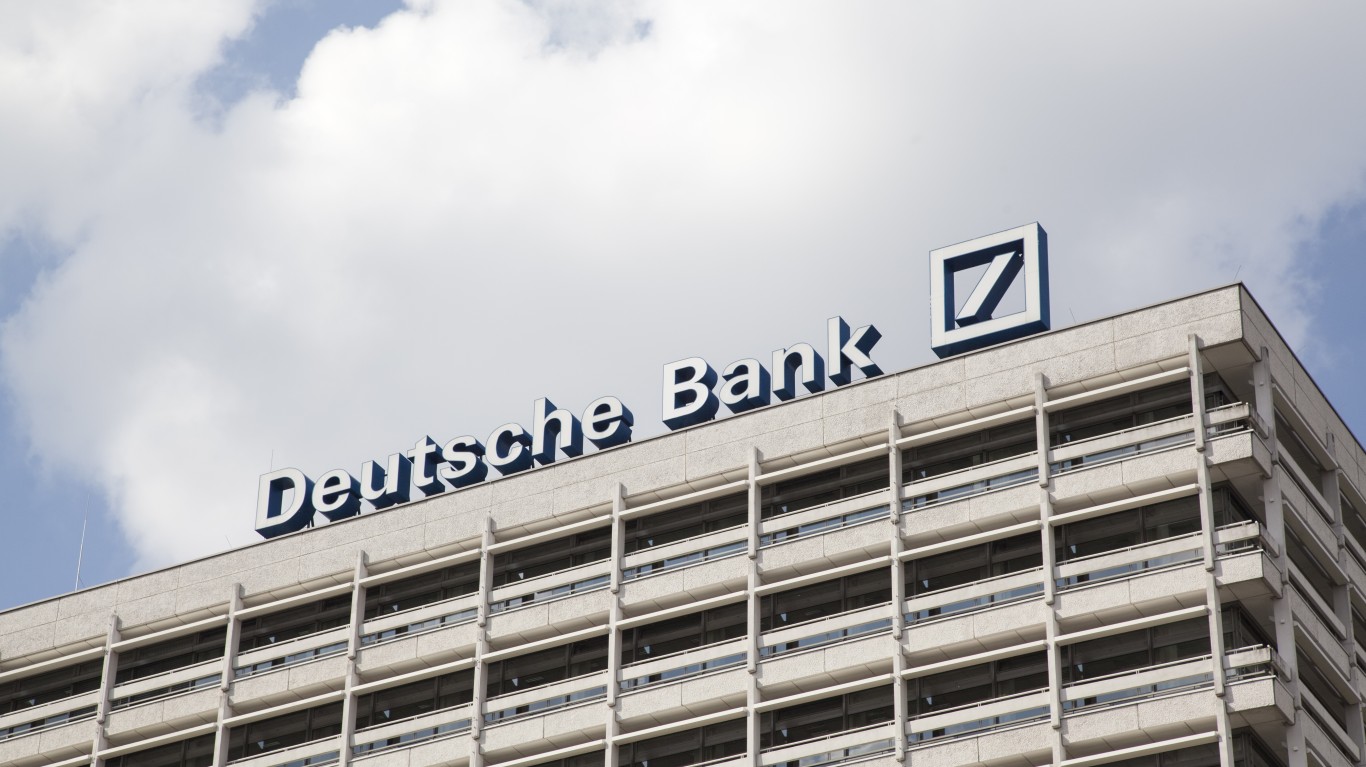
2. Deutsche Bank
> Total price-fixing fines and settlements since 2000: $3.76 billion
> No. price-fixing cases since 2000: 20
> Annual revenue: $26.48 billion
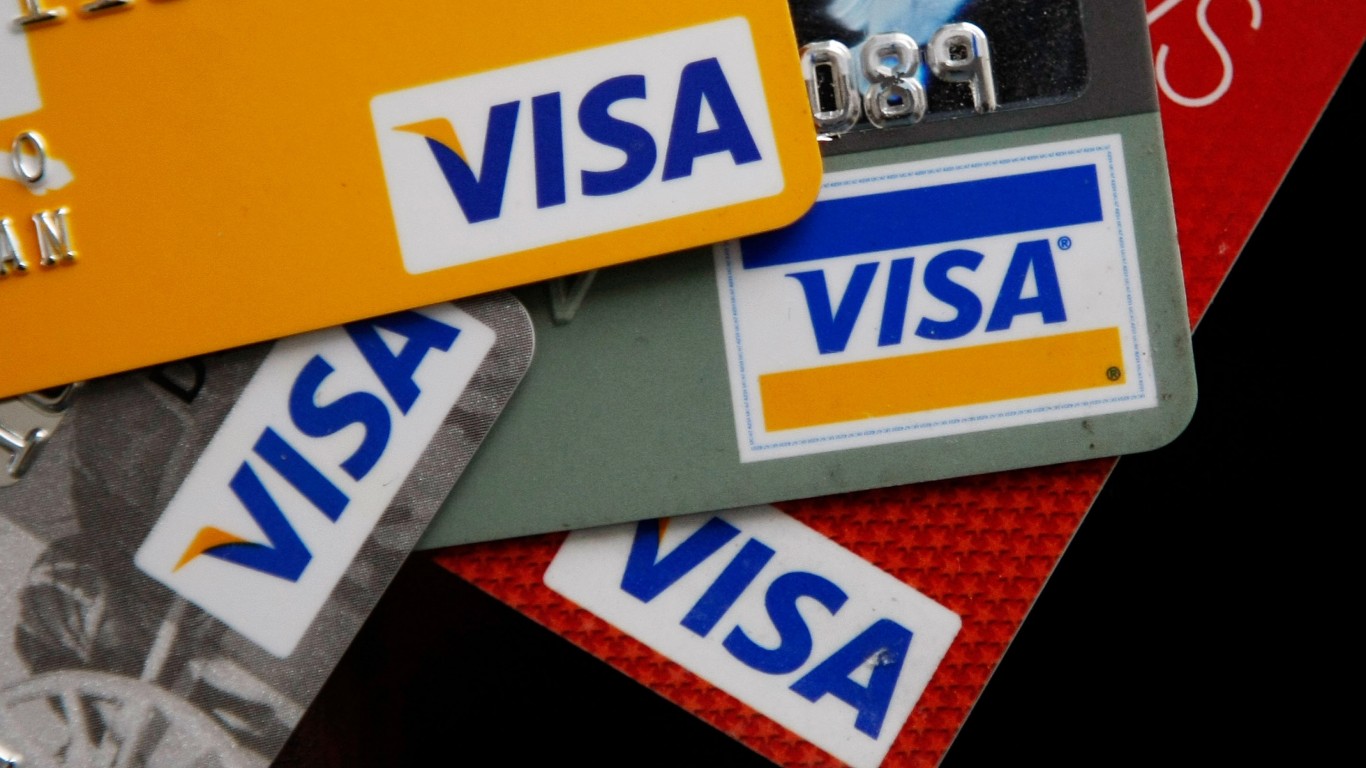
1. Visa
> Total price-fixing fines and settlements since 2000: $6.23 billion
> No. price-fixing cases since 2000: 4
> Annual revenue: $29.31 billion
Credit card companies are pulling out all the stops, with the issuers are offering insane travel rewards and perks.
We’re talking huge sign-up bonuses, points on every purchase, and benefits like lounge access, travel credits, and free hotel nights. For travelers, these rewards can add up to thousands of dollars in flights, upgrades, and luxury experiences every year.
It’s like getting paid to travel — and it’s available to qualified borrowers who know where to look.
We’ve rounded up some of the best travel credit cards on the market. Click here to see the list. Don’t miss these offers — they won’t be this good forever.
Thank you for reading! Have some feedback for us?
Contact the 24/7 Wall St. editorial team.